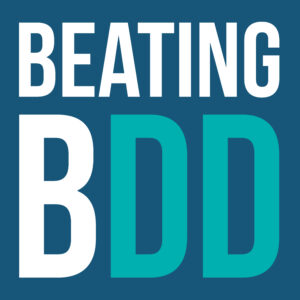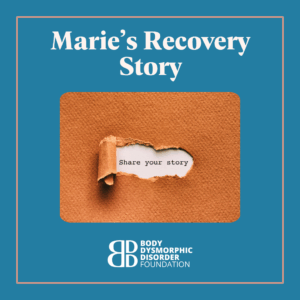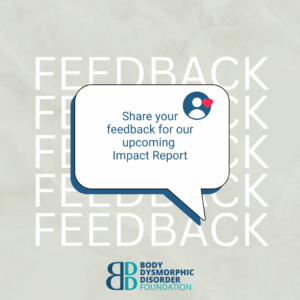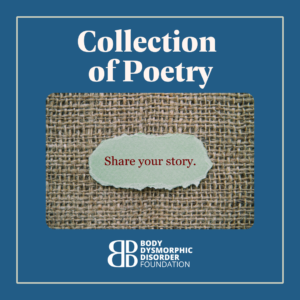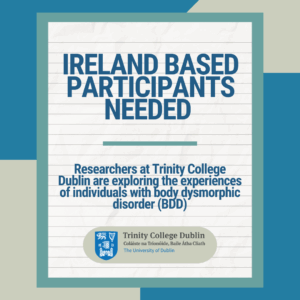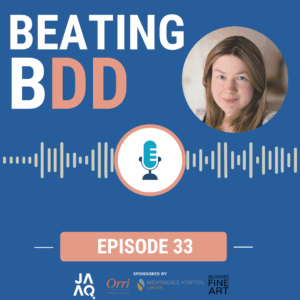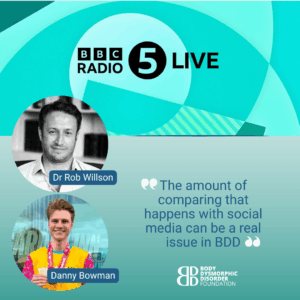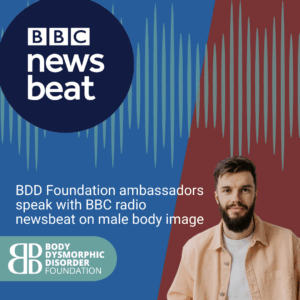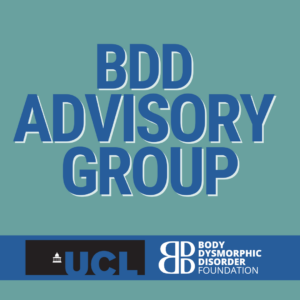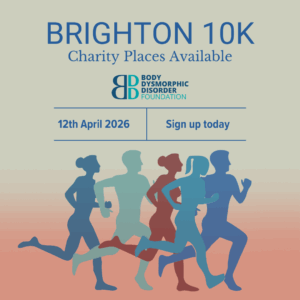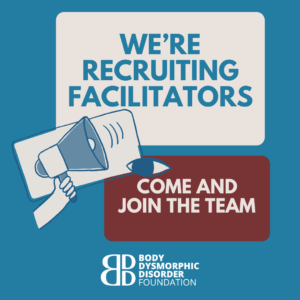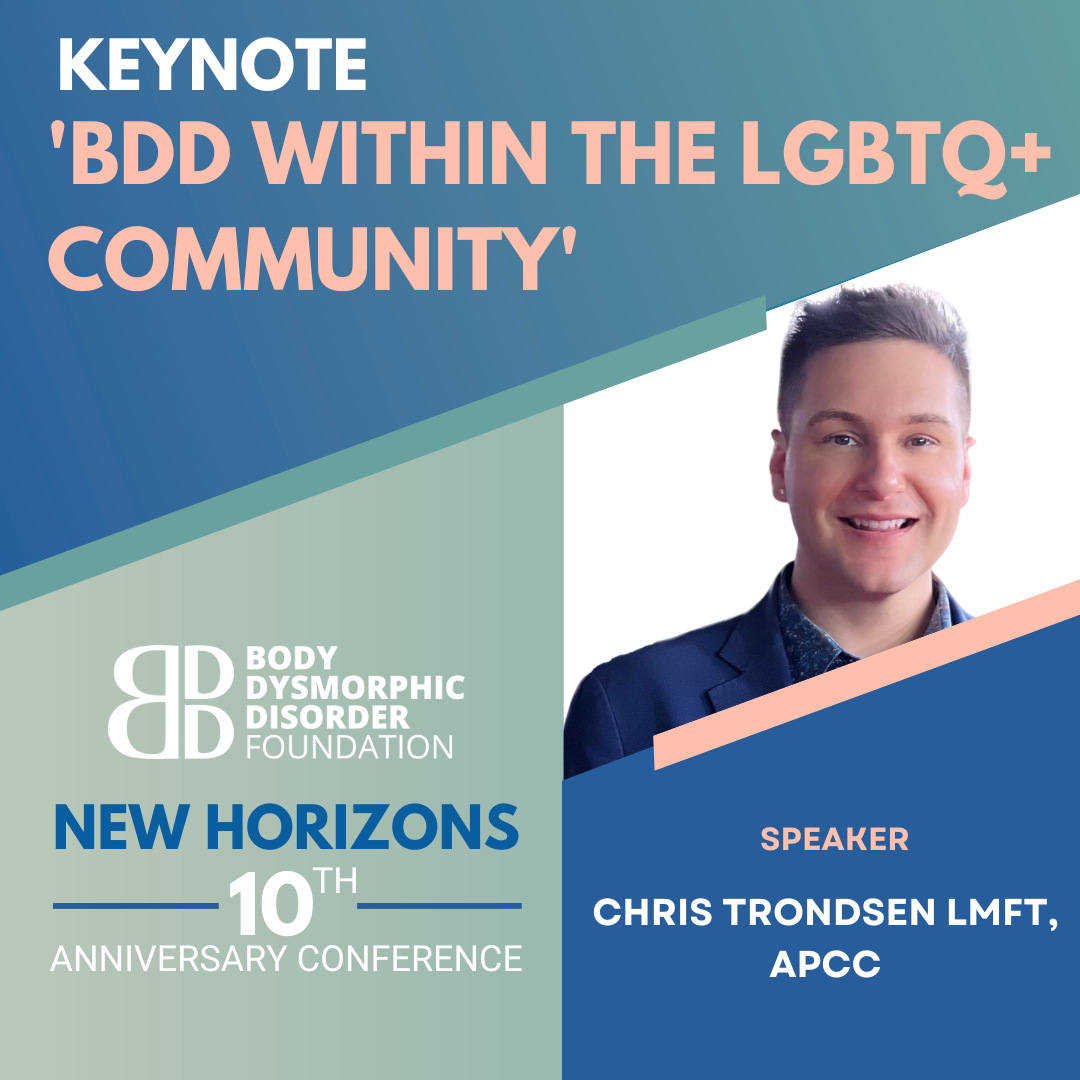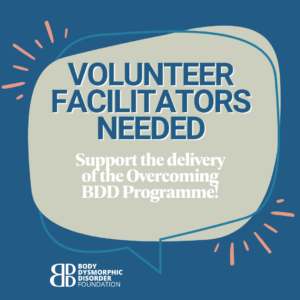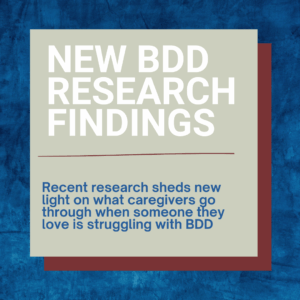with Chris Trondsen, LMFT
Individuals suffering from BDD all experience appearance fixations. However, people with BDD who are also members of the LGBTQIA+ community are impacted by additional and unique challenges when suffering from this condition. BDD’s impact is more pronounced in LGBTQIA+ individuals, with research showing higher BDD, body dissatisfaction, eating disorder rates, and increased substance use disorder and suicidality than heterosexual individuals. This presentation will focus on how BDD affects all identities in the LGBTQIA+ community. Topics discussed will include high rates of muscle dysmorphia found in gay men, how transgender and gender nonconforming individuals may struggle with both BDD and gender dysphoria, and how people who are bisexual may receive mixed messaging on what potential partners find attractive. Additionally, there will be a focus on how social media, dating apps, LGBTQIA+ representation in the media, and queer culture contribute to the presentation of BDD. Attendees will walk away with a better understanding of how the LGBTQIA+ community is impacted by BDD, highlighting the need for researchers to do additional studies on this population and, finally, what we can do to address the epidemic of BDD in the LGBTQIA+ community.
Chris Trondsen suffered from undiagnosed, severe OCD, BDD, major depressive disorder, and anxiety and panic attacks beginning as a young child. It was not until his early 20s that Chris received both a formal diagnosis and specialised treatment. Once he concluded treatment, Chris began advocating publicly for mental health and shared his story of recovery on TV, including the Dr. Drew Show, the Montel Williams Show, and NBC, as well as in various newspapers and websites including Buzzfeed and VICE. Additionally, Chris began speaking at the annual IOCDF conference about OCD and BDD, including giving the keynote with his mom at the 2011 conference. He also helped start the Young Adult Track at the annual conference. No longer under the control of the disorders, Chris now works as a clinician in the mental health field, treating OCD, BDD, and related disorders at The Gateway Institute in Costa Mesa, California. He also currently serves as the Vice President of OCD Southern California, an official affiliate of the IOCDF. He is also a leader of the IOCDF’s BDD and LGBTQ+ Special Interest Groups, a member of two others, and recently selected to be a member of the IOCDF Board of Directors. As a lead advocate, Chris’s passions include expanding BDD awareness and education, addressing LGBTQ+ issues in mental health treatment, and expanding the IOCDF’s services to the young adult community.
More stories from the community
